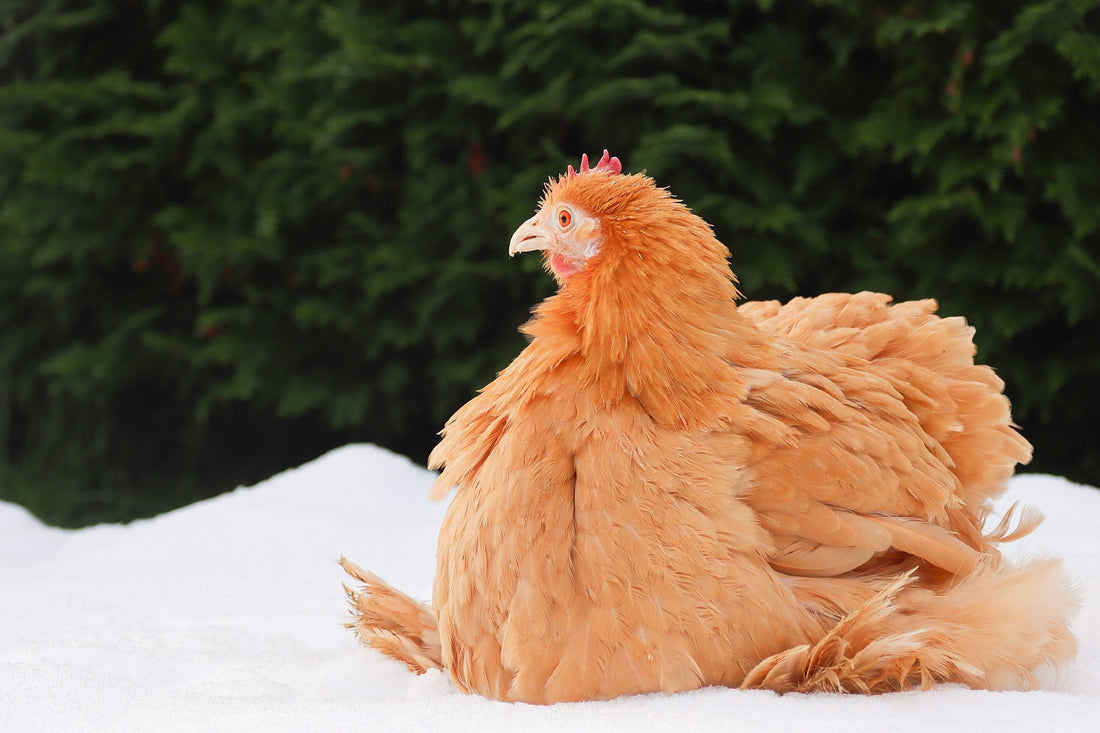Hey there, backyard chicken enthusiasts! Winter is not just coming; for many, it's already knocking at the door, bearing gifts of frost and snowflakes. While we humans snuggle up in cozy sweaters and sip on hot cocoa, our clucking companions have their own set of winter needs. Primarily: what's on the winter menu for our feathered friends? 🐔❄️
Understanding the Winter Nutritional Uptick
First off, let's understand the basics. As temperatures dip, chickens naturally burn more calories to keep warm. Just like we might crave a hearty stew over a salad, chickens also need a more calorie-dense diet to help fuel their internal heaters. It's their way of layering up, but from the inside out!
Cracking the Corn Conundrum
One of the popular winter treats for chickens is cracked corn. As the sun sets and the temperatures plummet, a little snack of cracked corn can be an excellent energy booster. The digestion process generates body heat, which, in turn, helps the chickens stay toasty throughout the cold night. Think of it as their midnight snack for warmth! But remember, moderation is key. While cracked corn is a delightful treat, it shouldn't replace their primary feed.
Packed with Protein
During the late fall and early winter, many chickens undergo molting, where they shed old feathers to make room for new ones. Feather growth requires protein, and lots of it! So, bolstering their diet with high-protein feeds and treats can be a game-changer. Consider treats like mealworms, black soldier fly larvae, or even a hard-boiled egg. These are like the protein shakes of the poultry world!
Fats: The Fluffy Feathers' Friend
Fats are energy-dense and perfect for winter. Toss in some sunflower seeds or offer suet cakes specially made for chickens. They'll not only thank you with clucks of appreciation but also with a robust health display that can brave the winter chills.
Gritty Matters and Oyster Offerings
With possible changes in the winter diet, it's also vital to ensure your chickens have access to grit. It helps them digest the new food varieties efficiently. And while you're at it, oyster shells can be a fantastic addition. They're a great calcium source, ensuring strong eggshells, especially when the daylight decreases and egg production can get a tad unpredictable.
Hydration Station
Water might freeze in the winter, but the chicken's need for it certainly doesn't. Always ensure they have access to unfrozen water. Hydration aids in digestion and overall health. Consider investing in a heated waterer or make it a daily chore to check and replace any frozen water.
Greens in the White Snow
Fresh greens might be scarce, but they remain an essential part of the diet. Kitchen scraps, leafy greens, or even a flock block filled with seeds and grains can offer both nutrition and entertainment for cooped-up chickens.
Tailored Feed for Frosty Times
Some feed brands offer winter-specific formulas. These are often packed with the right nutrients to support chickens through the colder months. If available and within your budget, it might be worth giving these a try.
Wrap Up: Diet Adjustments, the Chicken Whisperer’s Way!
In conclusion, winter is a time of care, love, and a touch of dietary indulgence for our backyard buddies. By making minor tweaks and offering a winter-specific menu, we ensure our feathery divas not only survive the cold but thrive in it. After all, a well-fed chicken is a happy chicken, and happy chickens make for an egg-ceptional flock! Keep those feeders filled, the water flowing, and embrace the joy of winter chicken-keeping. Happy clucking! 🐔🍂🌨️

